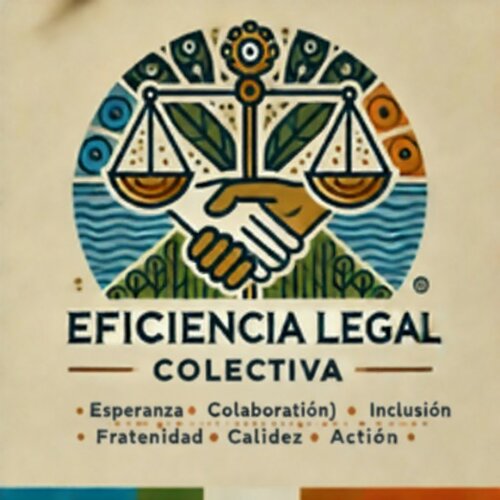Best Civil & Human Rights Lawyers in Tijuana
Share your needs with us, get contacted by law firms.
Free. Takes 2 min.
List of the best lawyers in Tijuana, Mexico
About Civil & Human Rights Law in Tijuana, Mexico
Tijuana, Mexico is a city that recognizes and upholds the importance of Civil & Human Rights. Civil rights refer to the basic rights and privileges that every individual is entitled to, such as freedom of speech, equality, and fair treatment under the law. Human rights encompass a broader scope, including the fundamental rights and freedoms to which all human beings are inherently entitled, regardless of their nationality, ethnicity, or social status.
Why You May Need a Lawyer
There are several situations where you may require legal help in Civil & Human Rights cases in Tijuana, Mexico. Some common examples include:
- Discrimination or harassment based on race, nationality, gender, or other protected characteristics
- Violation of freedom of speech or expression
- Unlawful detention or unfair treatment by law enforcement or government authorities
- Employment-related issues, such as wrongful termination or workplace discrimination
- Violations of privacy rights or personal integrity
Local Laws Overview
Understanding the key aspects of local laws in Tijuana, Mexico that are relevant to Civil & Human Rights is crucial. Some key points to keep in mind include:
- The Mexican Constitution safeguards Civil & Human Rights, providing protection against discrimination, arbitrary detention, and more.
- Tijuana also recognizes international human rights obligations, including those outlined in the Universal Declaration of Human Rights and other international treaties.
- The National Human Rights Commission (CNDH) plays an essential role in promoting and safeguarding human rights in Mexico.
Frequently Asked Questions
1. Are there specific laws against discrimination in Tijuana, Mexico?
Yes, Mexico has laws that prohibit discrimination based on race, nationality, gender, religion, and other protected characteristics. The Federal Law to Prevent and Eliminate Discrimination provides a legal framework to combat discrimination.
2. How can I file a complaint for a Civil & Human Rights violation?
If you believe your Civil & Human Rights have been violated, you can file a complaint with the National Human Rights Commission (CNDH), the governmental body responsible for investigating such cases. They can guide you through the process and provide assistance.
3. What recourse do I have if I face unfair treatment by law enforcement or government authorities?
In cases of unfair treatment by law enforcement or government authorities, it is crucial to seek legal assistance immediately. A lawyer can help you file a complaint, gather evidence, and seek appropriate remedies through administrative or judicial channels.
4. Are there any local organizations that can provide support in Civil & Human Rights cases?
Yes, there are several local organizations in Tijuana, such as the Mexican Commission for the Defense and Promotion of Human Rights (CMDPDH) and Human Rights Tijuana, that provide support and legal advice in Civil & Human Rights cases. They can offer guidance and advocate on your behalf.
5. Can I get legal aid for Civil & Human Rights cases in Tijuana, Mexico?
In certain circumstances, individuals with limited financial means can access free legal aid through the Mexican legal aid system. These services may be available for Civil & Human Rights cases as well.
Additional Resources
- National Human Rights Commission (CNDH) - www.cndh.org.mx
- Mexican Commission for the Defense and Promotion of Human Rights (CMDPDH) - www.cmdpdh.org
- Human Rights Tijuana - www.humanrightstijuana.org
Next Steps
If you require legal assistance in Civil & Human Rights cases in Tijuana, Mexico, follow these steps:
- Assess the nature of your situation and determine if it falls within the realm of Civil & Human Rights.
- Research and connect with reputable lawyers or legal organizations specializing in Civil & Human Rights cases.
- Consult with a lawyer to discuss your case in detail and evaluate the available legal options.
- Gather any relevant documentation or evidence to support your case.
- Take prompt action to file complaints or initiate legal proceedings, following the guidance of your lawyer.
Lawzana helps you find the best lawyers and law firms in Tijuana through a curated and pre-screened list of qualified legal professionals. Our platform offers rankings and detailed profiles of attorneys and law firms, allowing you to compare based on practice areas, including Civil & Human Rights, experience, and client feedback.
Each profile includes a description of the firm's areas of practice, client reviews, team members and partners, year of establishment, spoken languages, office locations, contact information, social media presence, and any published articles or resources. Most firms on our platform speak English and are experienced in both local and international legal matters.
Get a quote from top-rated law firms in Tijuana, Mexico — quickly, securely, and without unnecessary hassle.
Disclaimer:
The information provided on this page is for general informational purposes only and does not constitute legal advice. While we strive to ensure the accuracy and relevance of the content, legal information may change over time, and interpretations of the law can vary. You should always consult with a qualified legal professional for advice specific to your situation.
We disclaim all liability for actions taken or not taken based on the content of this page. If you believe any information is incorrect or outdated, please contact us, and we will review and update it where appropriate.
Browse civil & human rights law firms by service in Tijuana, Mexico
Tijuana, Mexico Attorneys in related practice areas.











